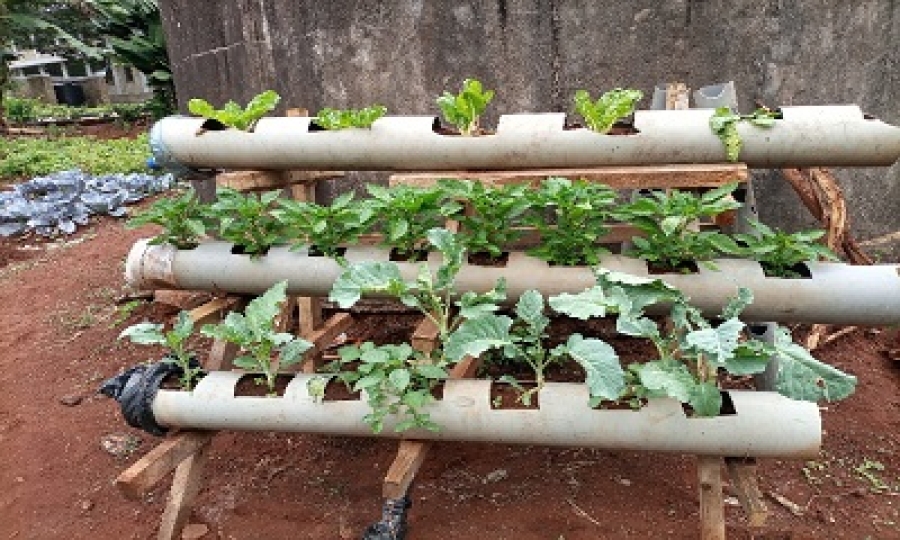Producing More Food with Less Resources
Written by Patrick Wanjohi
Food security is one of the most critical sectors of any country. Achieving it requires constant change in producing our food amidst a growing population, especially in urban areas. Rural-urban migration has led to a higher population in urban settings and the demand for more quality food. This paves the way for innovation in food production. The underlying principle is producing more food with fewer resources, including space, water and labour. One such innovation is multi-storey gardens that increase the vertical distance, allowing more plants to grow. CEMASTEA has set vertical gardens to demonstrate the possibility of growing food, guarantee the quality, and reduce living costs through savings on food purchases. The garden can accommodate at least 100 vegetable seedlings to sustain a family unit. Some of the benefits of vertical gardening include;
- Increased production from space maximization.
- Reduced water use
- Reduced labour because there is no weeding required and planting and harvesting are physically more accessible than conventional bending.
- Ability to lure young people into agriculture, especially in urban areas
Vertical gardening can take many forms and can use locally available materials, e.g. waste pipes, gunny bags, containers, among others. One only needs a mechanism to stack the planting media vertically. At CEMASTEA, we have constructed a multi-storey garden and vertical pipes gardens. This can be replicated in schools and communities for more people to adopt the innovative practice and contribute to food security at the household level.
(Left) A photo of the multi-storey garden and (right) vertical gardening with waste pipes
